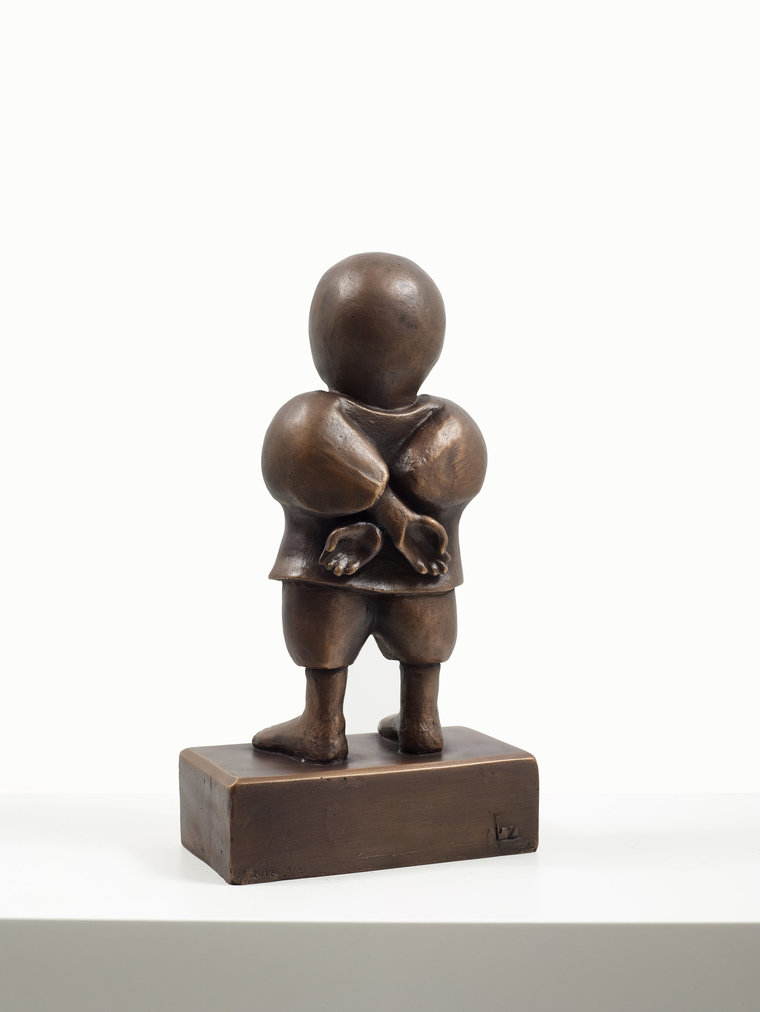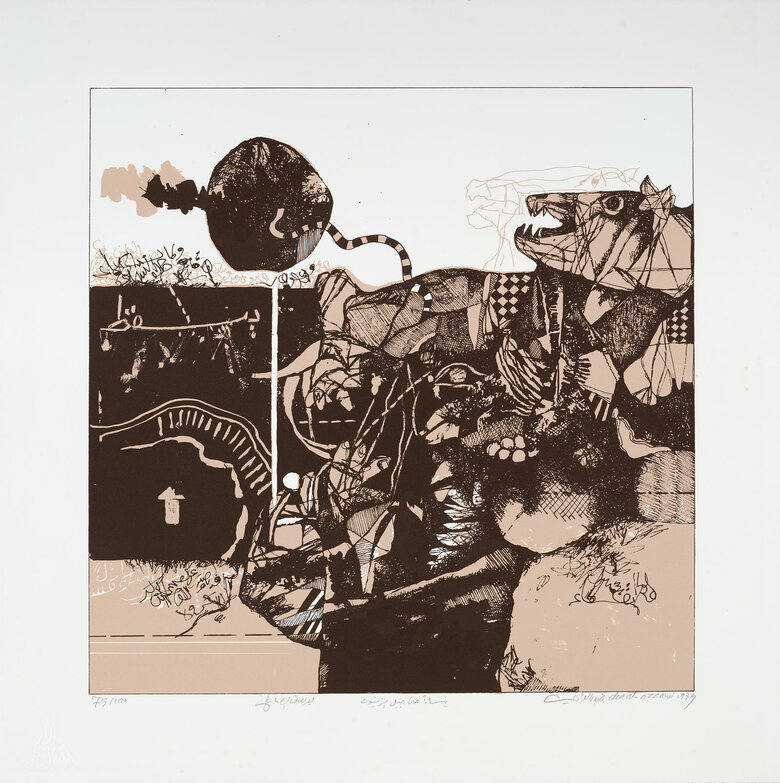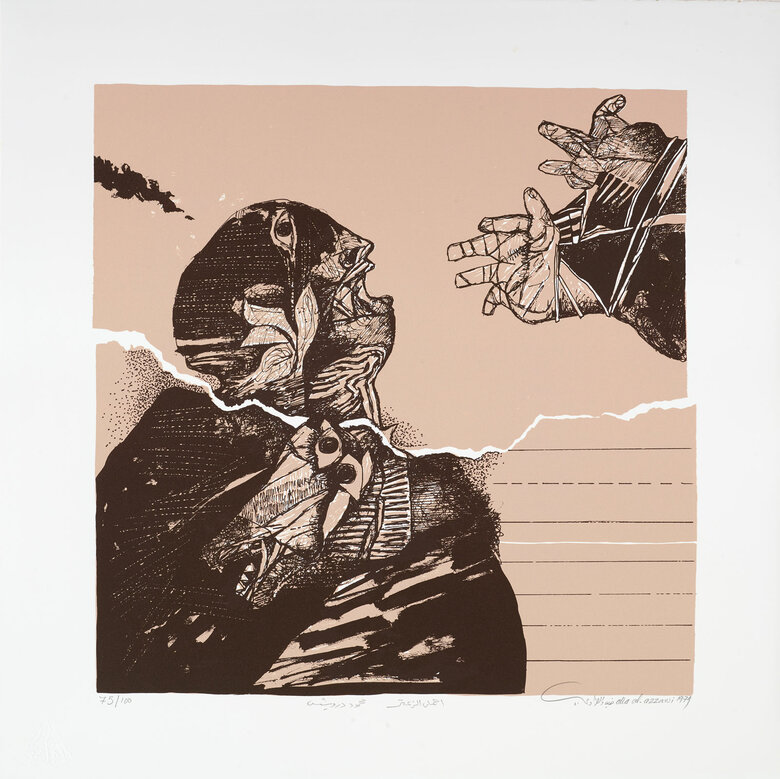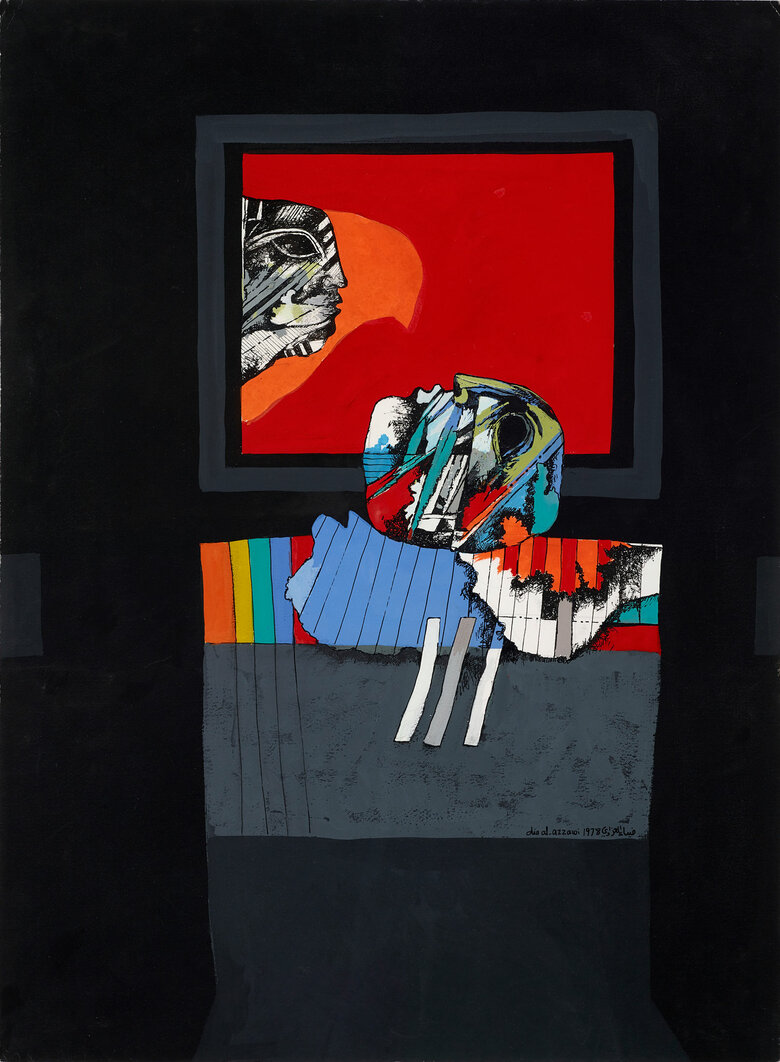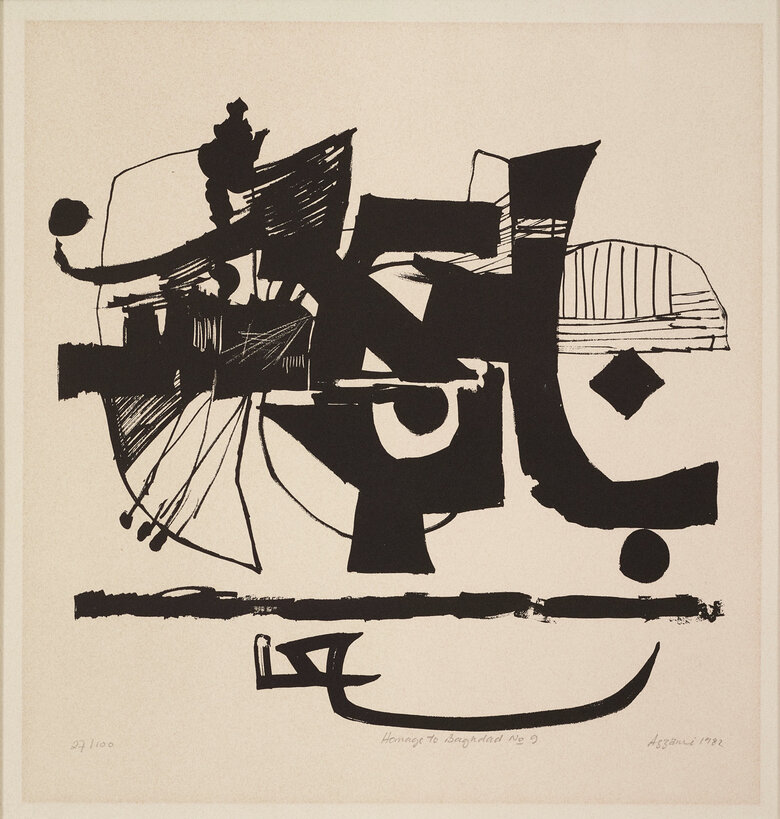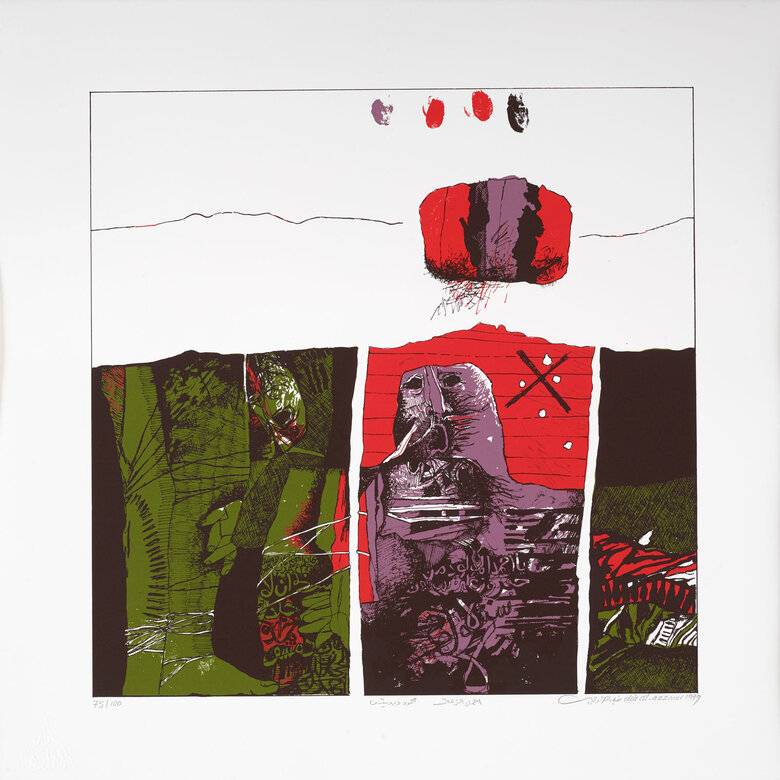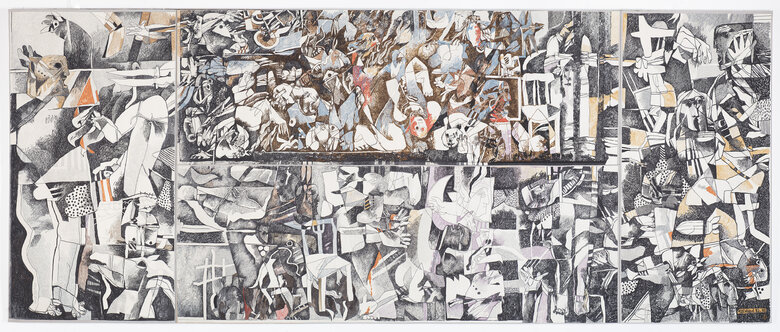‘Hanzala’ or ‘Handhallah’ is a prominent national symbol and personification
of the Palestinian people. The character was created in 1969 by political
cartoonist Naji al-Ali. The figure depicts a ten-year-old boy and is often
considered an applaud for resistance and the Palestinian identity. Moreover,
he serves as a symbol of Palestinian refugees yearning for the right to return.
Initially, the name Hanzala finds its roots in Citrullus colocynthis, a perennial
plant indigenous to Palestine. The plant bears a bitter fruit, regrows when
cut, and boasts deep roots, symbolizing displaced Palestinians’ enduring
pain and sorrow.
Hanzala was initially portrayed with his face toward the viewers. It underwent a symbolic transformation in 1973. Disheartened by the normalization of relations between the United States, the Arab world, and Israel, Naji al Ali turned Hanzala’s back to the audience. Al Ali expressed that this act was a “rejection at a time when solutions are presented to us the American way” and a “symbol of rejection of all the present negative tides in our region.” Naji al-Ali envisioned Hanzala remaining ten years old until the boy could return to Palestine. The character evolved into an iconic representation, embodying a just cause in Palestine and globally. Naji al- Ali, who joined the Arab Nationalist Movement in 1959, faced acute challenges for his critical and influential work. He was assassinated in London in 1987, but Hanzala’s legacy endures.
Martyr Signature, 2012, a bronze statue created by Dia Azzawi, depicts Hanzala’s figure standing 32 cm long. It pays homage to the enduring legacy of Hanzala and Naji al-Ali, the visionary creator. Hanzala is shown barefooted, in tattered attire, with an unsmiling countenance, shoulders slumped, and hands bound behind his back. In this stoic posture, he becomes a living witness to the hardships befalling his nation, embodying the resilient spirit of Palestinian Resistance.
Hanzala emerges as a dynamic symbol in demonstrations against Israel,
resonating as a potent graphic representation of Palestinian resilience. His
influence transcends the realm of sculpture, permeating various art forms
and inspiring countless artists and writers. The character, born from the
creative mind of Naji al-Ali, continues to weave its narrative into the fabric of
Palestinian expression, steadfastly testifying to the enduring spirit of a
people determined to overcome adversity.
Artist signature stamp on back of base.

